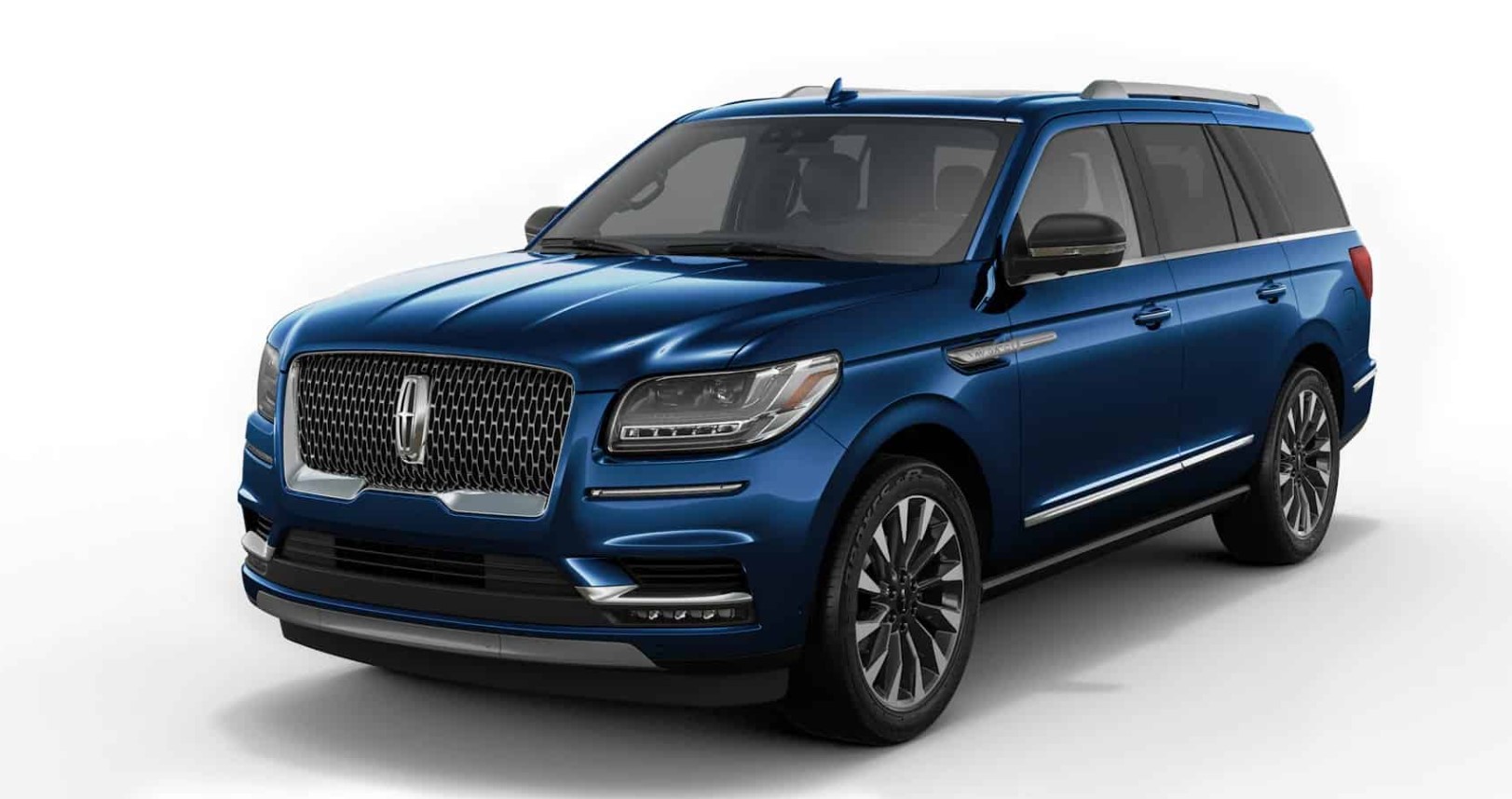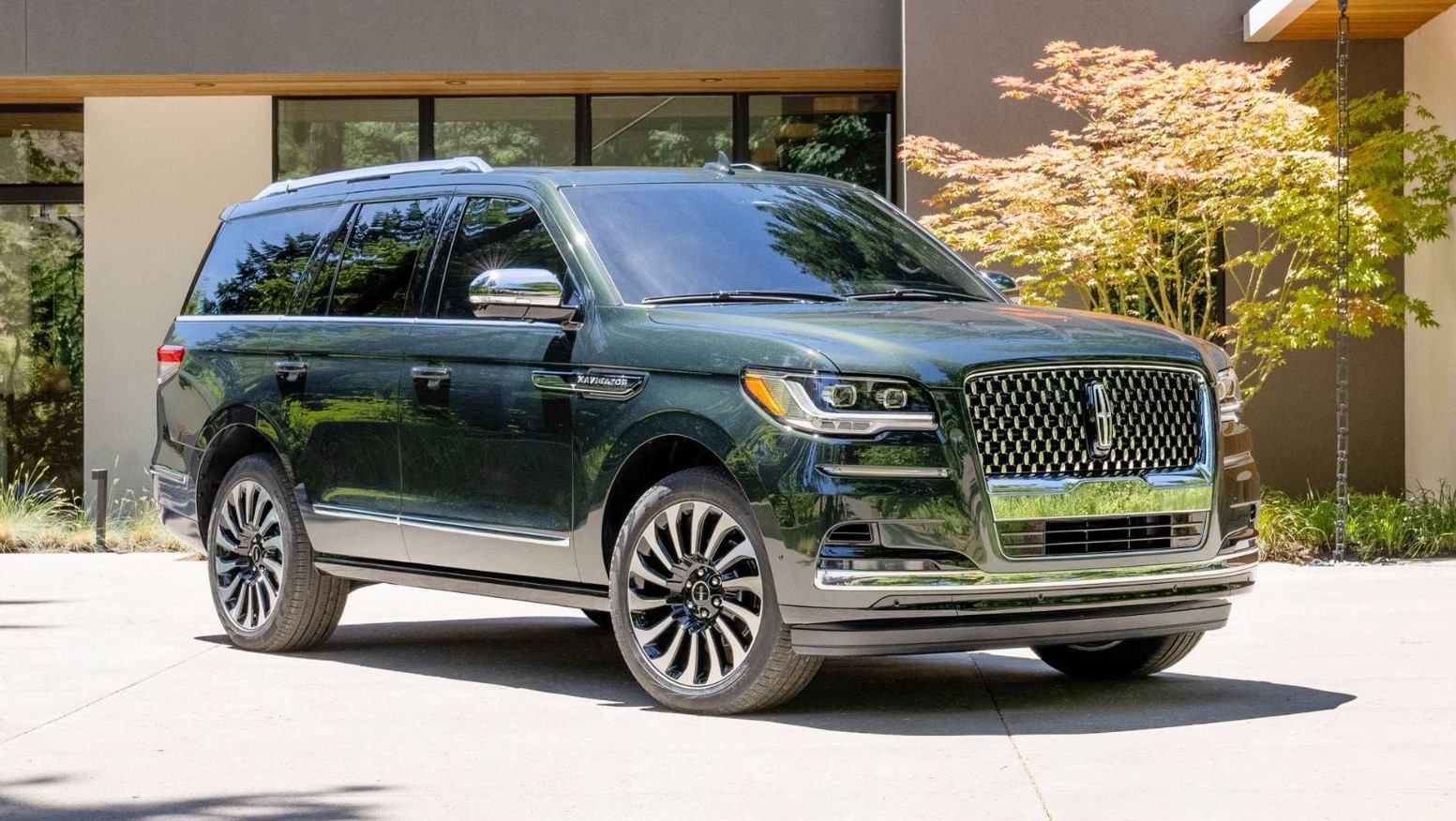It’s quite understandable when people like to compare Lincoln Aviator vs Navigator, considering that both of them may look the same – especially for those who aren’t really familiar with the lineup. Lincoln’s new models have seemingly similar design language. Not to mention that the company has decided to bring back the Aviator’s nameplate after 10 years of being dormant. The Aviator is designed as a 3-row vehicle that competes against other powerful names as Audi Q7 and Volvo XC90. However, the Navigator is also coming with 3-row layout, and even bigger size than the Aviator. It competes against other vehicles in another category, such as Caddy Escalade.
The Size
When it comes to the size, the Navigator is basically bigger than the Aviator although both are coming with 3-row layout. If you are familiar with the Ford lineup, you can consider Aviator as the Explorer, while the Navigator as the Expedition. After all, the Explorer and the Aviator do share similar platform, just like the Expedition and the Navigator do. Keep in mind that Navigator also comes as Navigator L, which is the long wheelbase version.

When it comes to wheelbase, the Aviator is 119.1 inches, while the Navigator is 122.5 inches. The Navigator L is 131.6 inches. For length, the Aviator is 199.3 inches, while the Navigator is 210 inches and Navigator L is 221.9 inches. From these numbers, you can see the significant difference.
Interior Space
Because of the smaller size, the interior space in Aviator is somewhat more compact. The third row isn’t as roomy as the one in Navigator. Tall adults can enjoy roomy legroom and headroom in Navigator, but not so much in Aviator. In short, third row space for the Aviator isn’t as roomy (or comfy) as the one in Navigator, especially for adults and tall adults. For kids or small teens, the space in third row Aviator is still convenient.
Exterior Design
Navigator somewhat has boxier design than the Aviator; probably because of the bigger size and interior space. Navigator somewhat comes with more robust characteristics, while Aviator seems more polished with crispier lines. Both of them have similar grille and design styles, but you can tell the difference. You can easily spot which one is Navigator and which one is Aviator.

Powertrain and Performance
The differences between Lincoln Aviator vs Navigator couldn’t be more apparent when it comes to the powertrain. Navigator is constructed with body on frame chasis, having 4×4 traction as the extra option. The Aviator, on the other hand, is coming with rear wheel driving system and all wheel drive offered as the available pick.

Navigator is only offered with one powertrain, which is the V6 twin turbo unit of 3.5 liter capacity, delivering 450 hp and 510 Nm of torque, paired up together with auto 10 speed transmission. This would be the same layout used in F-150 and also Ford Expedition. The Aviator, on the other hand, is offered with 2 different powertrains. The base unit would be a V6 twin turbo unit with 3.0 liter capacity, generating 400 hp and 415 Nm of torque. The Grand Touring trim level, however, is a plug in hybrid version, running on the same V6 twin turbo unit paired with one electric motor and a 13.6 kWh battery. This layout can deliver 494 hp and also 630 Nm of torque. Both of them are coming with auto 10 speed transmission, resulting in smooth (and somewhat flawless) shifts.
Conclusion
Now that you already understand the entire differences between the two models, it shouldn’t be difficult anymore to tell them apart. With complete information about Lincoln Aviator vs Navigator, you should be more familiar with them now.
